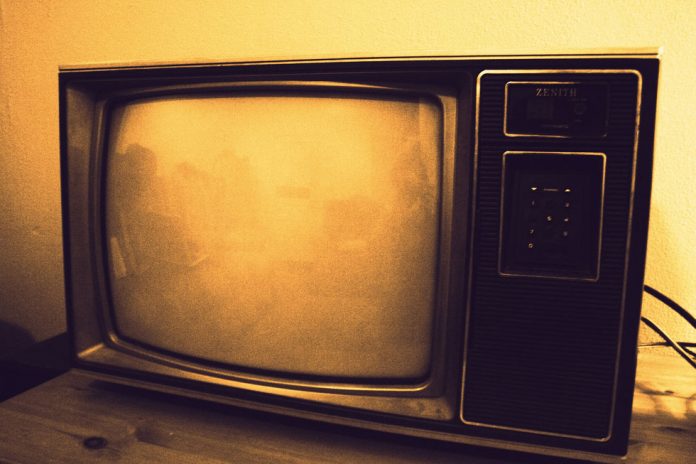The story of the Ugandan audience’s love story with the programming on mainstream media is like a tale of a man who fell in love with a lady, broke up with her, got back with her and then broke up again.
Ugandans were followers of the comedy and drama block on the Uganda Broadcasting Corporation (UBC) in the 1990s, which included programs such as Inspector Derrick, That’s Life Mwatu, Bibaawo among other shows.
Programming evolved when Wavah Broadcasting Service (WBS) entered the market. It raised the bar by introducing fresh shows, including Power Rangers, which made kids by that time feel like superstars and super heroes and it was also enjoyed by the adults, this show became an instant hit. Much later, the broadcaster would premiere Afri-Talent`s television serie`Ensitaano` which was one of the most popular shows with the 18-49 demographic up to date not mentioning a show like `Bidugu` that was assembled by Kato Lubwama`s Diamonds Production.
Then came a disruptor, NTV, which won the Ugandan audience instantly with new shows whose appeal cut across all audiences. That’s how the Madhvani group owned station surged ahead of all other local TV stations to become the most popular station in Uganda, a status which it has arguably held on to until now.
Recently, all the local stations invested heavily in their editorial departments by recruiting new talent in a bid to improve their ratings, which is good actually but production seems to have been relegated to the back seat in terms of investment.
But that ought not to have been the case, with exception of a few good shows, Ugandans have largely fallen out of love with Ugandan TV and sadly enough the situation cuts across all audiences.
The norm currently is that everyone watches news and as soon as they are done, they switch gears and start watching their favourite American shows.
It also applies to the elite audience who switch to Netflix, Super sport, BBC News, CNN, MTV, Aljazeera, CNBC and Bloomberg as soon as they are done watching local news.
Don’t get me wrong. At the moment there are a couple of Ugandan shows like NBS`s Frontline, NTV`s Mwasuze Mutya, Emikolo Ne Mbaga on both NBS and Bukedde TV, Abanoonya on Bukedde TV, Live Wire and NBS Uncut on both NTV and NBs respectively. I can never fault soap opera because they have their target audience.
However, that’s just about it. The other shows on Ugandan TV leave a lot to be desired especially when it comes to comedy.
In 2021, UBC run a promo that celebrated the anniversary of 58 years of their local shows. The issue, however, is that at the moment all those shows are well past their prime date and no longer in sync with what the audience wants to watch and it will take more than a miracle to see UBC competitively back in TV business.
NTV and NBS on the other hand each year add new shows to their portfolio but many of them struggle for ratings and they get scrapped off eventually.
The America effect
Competition for audiences in the United States is cutthroat; there are the free to air networks, including ABC, FOX, CBS, NBC and The CW and then there are the pay TV (cable) networks, including HBO, AMC, Starz, among many others. Competition also comes from Video on Demand (VOD) platforms headlined by Netflix, Amazon Prime, Hulu, CW seed, CBS All Access and Crackle.
Lesson 1-Cancel a show if it’s no longer popular with the audience
The American channels compete for the same audience. So steep is the competition that a show gets cancelled when it fails to attract audiences. A good example is ABC`s drama series, Ten Days in the Valley, which averaged 2,155 million viewers in the 18-49 target audience before it got cancelled after 10 episodes.
Americans also staged an online campaign to have some cancelled fan favourite shows brought back including Lucifer and Designated Survivor, which had been cancelled on FOX and ABC. Netflix picked up the shows due to public demand.
Shows also go on break to allow producers to re-fresh their ideas. The break is known as the mid-season break/ hiatus which runs from September to June. During this period other shows come into the schedule to allow production of the off-schedule shows to resume production.
Lesson 2- Let’s have variety
The Ugandan audience has been choked with the same content across all the channels. Schedules of the Ugandan TV stations are almost similar. Even Lord Mayor on Jan 23rd claimed he no longer watches TV because of political analysts.
There is also zero investment in drama. Americans on the other hand are spoilt for choice.
Lesson 3 – If we have a variety of good shows, Kenyan TV will be competitive
If you ask anyone who watches TV Series, they will tell you that if they work, they don’t have the time to keep up with foreign shows because there are a lot of good shows and not enough time to watch them.
The competition for the American audiences is usually at its optimum on Wednesday nights. The audience can choose between watching. Star and Empire on FOX. The Goldbergs, American Housewife, Modern Family, Single Parents and A Million Little Things on ABC. The One Chicago block on NBC. Survivor, Seal Team, All American on The CW.
All these shows are popular and attract more than 1 million viewers save for the ones on CW because it targets the teens.










